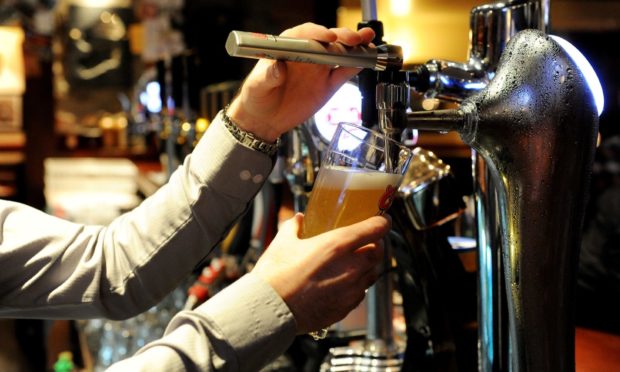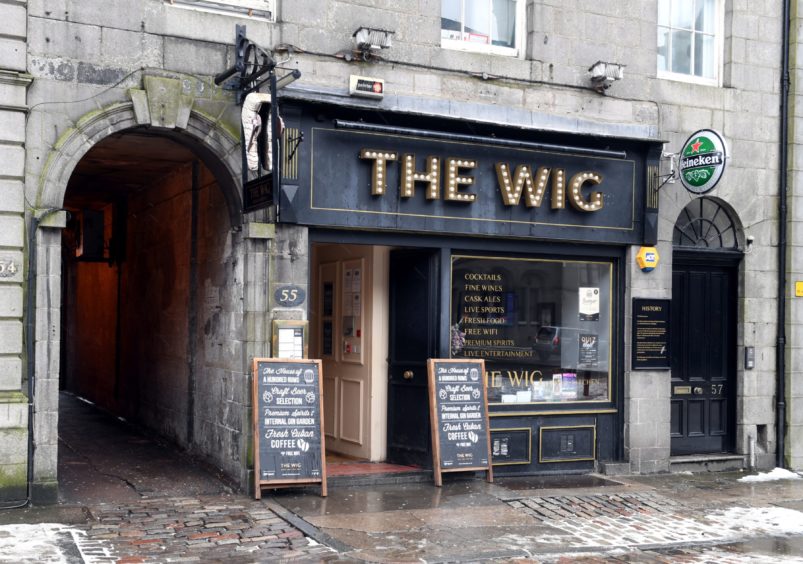North and north-east pub tenants are among more than 150 from around Scotland who are urging Nicola Sturgeon to halt the passage of potentially “ruinous” legislation through the Scottish Parliament.
They have written to the first minister warning the Tied Pubs (Scotland) Bill threatens their livelihoods and the viability of the pubs they operate.
The letter is signed by 151 pub tenants throughout the country.
Aberdeen establishments on the list include the Broadstraik Inn, the Golden Tee, the Scotia Bar and The Wig.
Inverness pubs Dows and the Innes Bar are on the list, and so too are Clachnacarry Inn, the Balavoulin, in Aviemore, the Laroch, in Ballachulish, and the Maryburgh, in Fort William.
They are joined by the Isles Inn and Portree Hotel, both on Skye, the Ionic Bar and Caberfeih, both in Elgin, the Bridge Bar, in Ellon, and the Commercial Inn, in Inverurie.
Contract
A tied pub is one where there is a contract between owner and tenant, where the tenant has to buy certain products – mainly beer – from the owner at a higher than normal wholesale cost in exchange for rent of the pub. The rent is often set at a lower than market value. There are currently around 750 tied pubs in Scotland.
The aim of the Tied Pubs Bill is to “improve the position” of these tenants by establishing a Pubs Code to govern their relationship with owners, and an adjudicator to enforce the code.
It will give tied tenants the option to request a “market-rent-only” lease, meaning they can pay the going market rate to rent the pub without having to buy products or services from the commercial landlord.
They would, therefore, not be restricted to selling only beers made and/or distributed by the pub’s owner.
Safety net
But tied pub operators have warned the bill, if passed, may have the unintended consequence of removing their safety net of commercial landlord support, and have a “ruinous impact on the “viability of our businesses and the future of our sector”.
Benefits of the tied pub system include favourable rent terms, access to central buying power, advice and resources.
For many this relationship has proved to be a lifeline during the coronavirus pandemic, with tenants receiving full rent cancellations or substantial reductions, as well as replacement beer, advice and practical support on re-opening their businesses in a Covid-secure way.
In their letter, the pub tenants express deep concern for the bill and hope the first minister shares their view.
They say the bill potentially “takes a sledgehammer to the aspirations of entrepreneurs like us who have benefitted from the tied-model, and the capital investment it provides to enable us to open and operate successful pubs across our country”.
‘Significant disincentive’
The letter argues the proposed legislation, if passed, “would create a significant disincentive to pub companies to invest in Scotland” and “have a residual effect on our ability to not only maintain but grow our businesses”.
According to the signatories, Scotland’s lockdown restrictions have cost pubs millions of pounds in sales, and the threat of the bill progressing “will only exacerbate the challenges facing our businesses and increase the perpetual uncertainty hanging over our sector”.
The letter says the Scottish beer and pub sector can play a “fundamental role” in the country’s post-Covid recovery to “energise the nation” and drive the economic recovery further, adding: “It does not need regulation in the shape of the Tied Pubs Bill.”
The bill passed stage one in the parliamentary process before Christmas, against the recommendation of the economy, energy and fair work committee, which said there was no evidence the legislation was required.
Despite this, MSPs and the Scottish Government have continued to push ahead “knowing the damage it could cause”, the letter says.
A spokeswoman for the Scottish Beer & Pub Association said: “The letter concludes that parliamentarians need to wake up to the ruinous impact this piece of legislation will have on the sector and take action at stage two to rectify this before it’s too late.”

